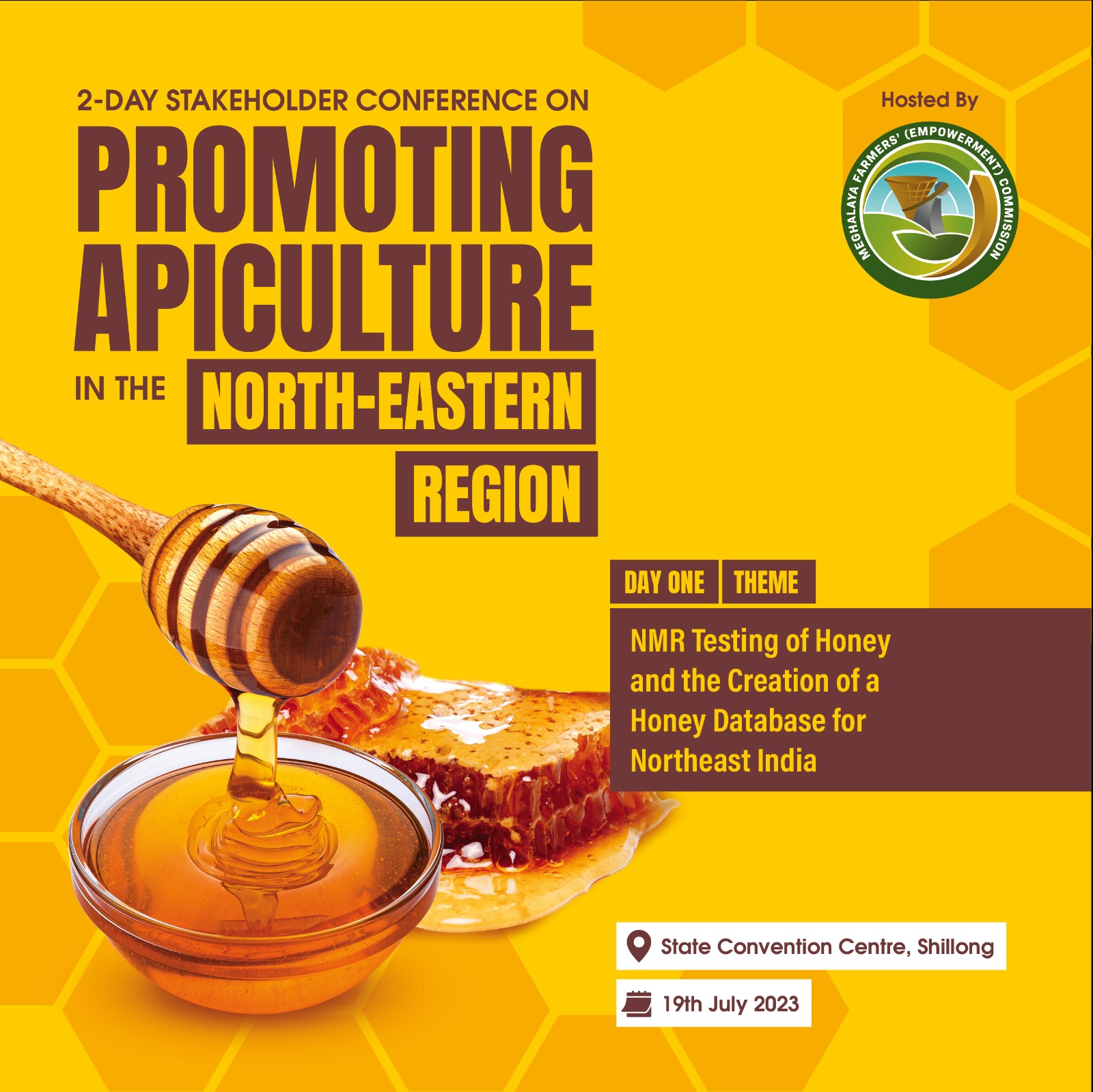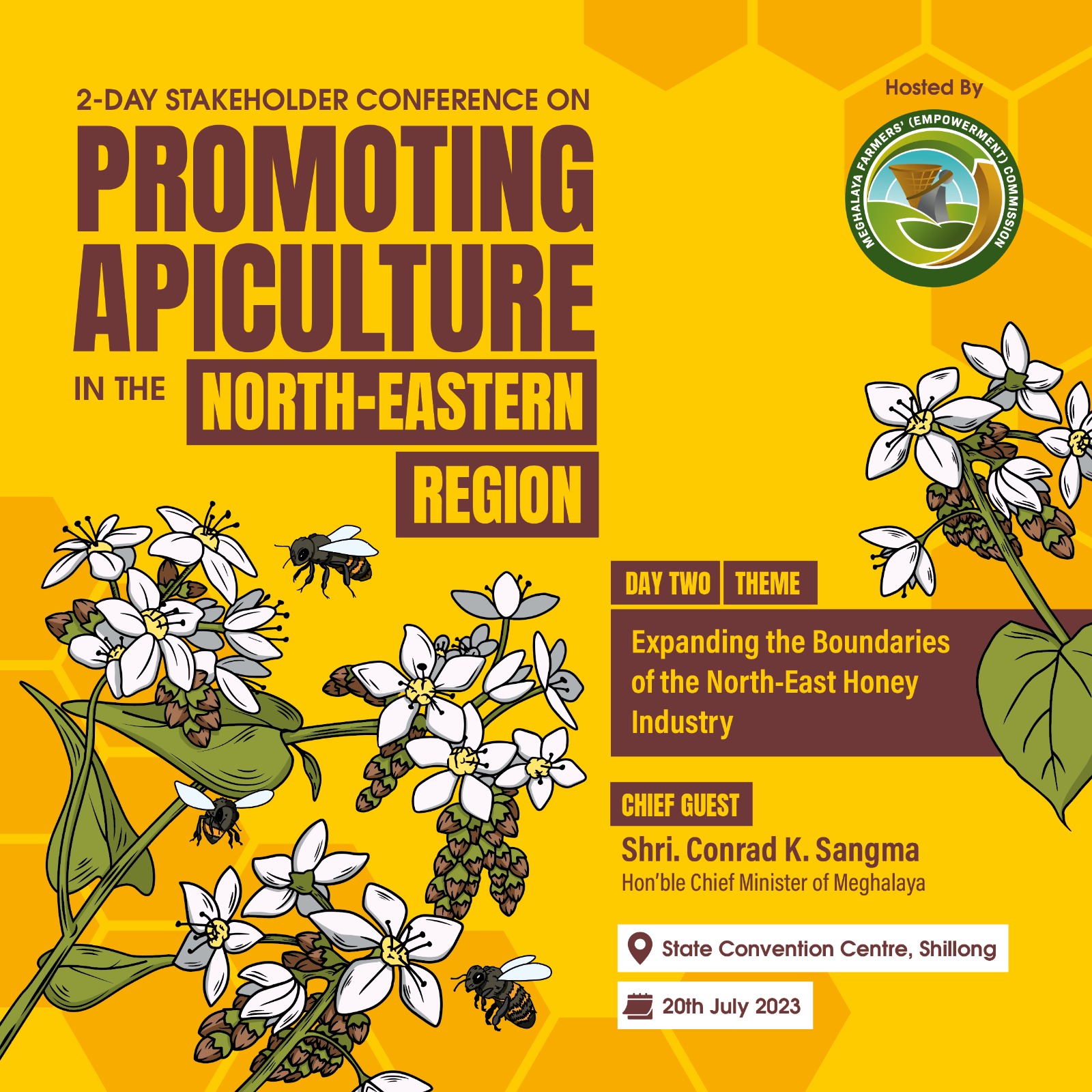|
DAY 1- 19th July 2023 |
Theme 1 - NMR Testing of Honey and the Creation of a Honey Database for Northeast India' |
|
Time |
Topic |
|
10.00 - 10.15 AM |
Introduction of all participants |
|
10.15 AM - 11.00 AM |
- Welcome Address - B. K. Sohliya, Executive Adviser, MFEC
- Opening remarks - K.N. Kumar, Chairman, MFEC
- Brief of the NECTAR Honey initiative - Dr. A.K. Sarma, Director General, NECTAR
- Brief of the NCL initiative - Dr. A. Lele, Director, CSIR-NCL
|
|
11.00 AM - 12.00 PM |
Technical presentation - NMR spectroscopy – an invaluable tool for honey profiling – CSIR-NCL |
|
12.00PM - 12.30 PM |
Technical presentation – “Melissopalynology & its potential for the industry” - Dr. Laxmi Rao |
|
12.30 PM - 1.00 PM |
Technical presentation – “Bumblebees / Dorsata – long ignored pollinator friends” - Prof Harish K. Sharmaa |
|
1.00 PM - 2.00 PM |
LUNCH |
|
2.00 PM - 2.30PM |
Technical Presentation – “Tetragonula and its importance for the country” - Dr. S. Devanesan |
|
2.30 PM - 3.30 PM |
View from the States - Dr Avinash Chauhan and others |
|
3.30 PM - 5.00 PM |
Discussion on future strategies, broad roadmap and finalization of recommendations to be placed before the Chief Minister - moderator - Shri. K.N. Kumar, Chairman, MFEC |
|
|
|
|
DAY 2 – 20th July 2023 |
Theme 2 - ‘Expanding the Boundaries of the North-East Honey Industry' |
|
|
|
|
Time |
Topic |
|
9.30 AM - 10.15 AM |
Registration of beekeepers |
|
10.30 AM - 11.00 AM |
A brief of the NECTAR Honey Mission |
|
11.00 AM - 11.30 AM |
Apiculture Development in the Hindu Kush Himalaya Region and its Potential for Beekeepers and Entrepreneurs of the Northeast - Prof.
H.K. Sharma |
|
11.30 AM - 12.00 PM |
Enterprise& income generating potential of Hive Products - Dr. K. Laxmi Rao |
|
12.00 PM - 1.00 PM |
- Arrival of the Chief Minister
- Welcome – MC
- 'Presentation on the workshop Findings - a Way forward' – B.K. Sohliya, Executive Adviser, MFEC
- Speech by Director, CSIR-NCL
- Speech by Director General, NECTAR
- Speech by Shri. K.N. Kumar, Chairman, MFEC
- Signing of MOU of collaboration between MFEC and NECTAR
- Speech by the Chief Minister
- Vote of thanks
|
|
1.00 PM - 1.30 PM |
Chief Minister's visit to Mini Exhibition |
|
1.30 PM - 2.30 PM |
LUNCH |
|
2.30 PM - 3.00 PM |
Queen bee rearing – Dr. Avinash Chauhan. |
|
3.00 PM - 3.45 PM |
Tetragonula in the Northeast - Dr. D. Thomas and experience sharing by stingless beekeepers of Garo Hills |
|
3.45 PM - 4.45 PM |
Open House discussion |
|
|
|

